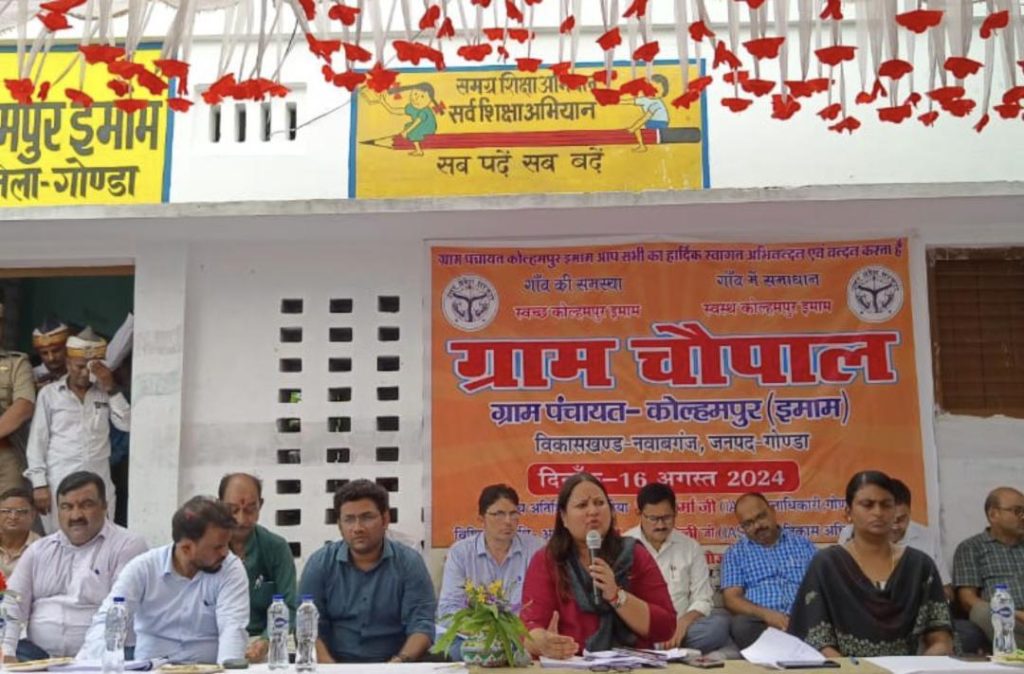
Data Doesn’t Lie: 40 Villages Chosen for Red Alert Governance
In a pioneering effort to bridge the gap between governance and the people, the administration of Gonda in Uttar Pradesh has taken a data-driven approach to solve the woes of its citizens. By analyzing thousands of complaints received through the Integrated Grievance Redressal System (IGRS), the authorities have identified 40 “high-complaint” villages that have been placed under a special red alert governance program. This initiative not only ensures that the villagers receive top-priority grievance redressal but also brings the administration to their doorstep, making it a true example of governance powered by numbers, not guesswork.
The IGRS system, a digital platform designed to streamline the process of receiving and resolving complaints, has been instrumental in identifying the areas that require urgent attention. By analyzing the data, the administration has been able to pinpoint the villages that are facing the most pressing issues, including poor road infrastructure, inadequate healthcare facilities, and inconsistent ration supplies. The data-driven approach has allowed the authorities to prioritize their efforts and allocate resources more effectively.
The 40 “high-complaint” villages, which have been designated as the first batch to receive the red alert governance, have been chosen based on a thorough analysis of the IGRS data. The villages were selected based on a range of factors, including the number and type of complaints received, the severity of the issues, and the impact on the daily lives of the villagers.
Once the villages were identified, the administration launched a series of “samadhan shivirs” (grievance redressal camps) in each of the 40 villages. These camps have been set up with the specific objective of resolving the issues faced by the villagers, from potholed roads to delayed ration supplies. The camps have been equipped with full administrative teams, including officials from various departments, such as public works, healthcare, and food supplies.
The “samadhan shivirs” have been a game-changer for the villagers, who have been able to raise their concerns directly with the authorities and receive on-the-spot solutions. The camps have been held in a decentralized manner, with each village hosting its own camp, ensuring that the villagers have to travel less distance to access the services.
The impact of the red alert governance program has been significant. Villagers have been able to resolve their issues quickly and efficiently, without having to wait for weeks or even months for their complaints to be addressed. The program has also helped to build trust between the administration and the people, as the villagers have been able to see tangible results of their efforts.
The success of the program can be attributed to the data-driven approach that has been adopted. By analyzing the IGRS data, the administration has been able to identify the areas that require urgent attention and allocate resources accordingly. The program has also helped to streamline the process of receiving and resolving complaints, reducing the burden on the administration and ensuring that the villagers receive prompt attention.
The red alert governance program is a shining example of how data can be used to improve governance and deliver better services to the people. By leveraging the power of data, the administration of Gonda has been able to create a more responsive and effective governance system that is truly of the people, by the people, and for the people.
Source: https://thecsrjournal.in/gram-chaupal-gonda-brings-governance-doorstep-spot-solutions/






